The circumstances of Michael Jackson‘s death almost 10 years ago couldn’t have been more strange.
Not in that we don’t know what happened to him—although that, too, was bizarre—but in that Jackson had been existing for years in a state of celebrity limbo, still as one of the most famous people on the planet and a revered artist, but also as a punchline, someone whose oddities had largely overtaken his genius in the public eye.
As soon as he was gone, the inexplicable behavior, the outlandish money trouble and the lingering accusations—and fast-held beliefs, by some—that he had abused children, despite being found not guilty of molesting a boy at a criminal trial in 2005, was not all of a sudden was erased from everyone’s memories. And no truly discerning account of the latter half of his career left all that out. But his rich musical legacy fairly instantaneously took center stage once again, with artists who hadn’t publicly been seen with Jackson in who knows how long showing up to pay tribute at all-star musical events and award shows and his contribution to pop music ripe for endless odes and appreciations.
For countless people, bringing up the Jackson molestation allegations counts as a slur against one of the greatest artists of all time. But the whitewashed version of Jackson’s legacy has never sat well for plenty of others, and there has literally been no time like the present to explain why.
At a screening on Friday morning, an audience at the Sundance Film Festival applauded Leaving Neverland, a raw, unsparing, four-hour documentary detailing alleged abuse suffered by Wade Robson and James Safechuck at the hands of Jackson when they were children. Counselors were on hand to speak to anyone upset by the film’s “explicit depictions of sexual abuse involving minors,” Sundance director John Cooper informed them beforehand. Multiple journalists tweeted during a break midway through the movie that what they had seen so far was extremely disturbing.
Outside, meanwhile, law enforcement was on high alert, in case the protesters who believe the film is trafficking in exploitation and lies got out of hand.
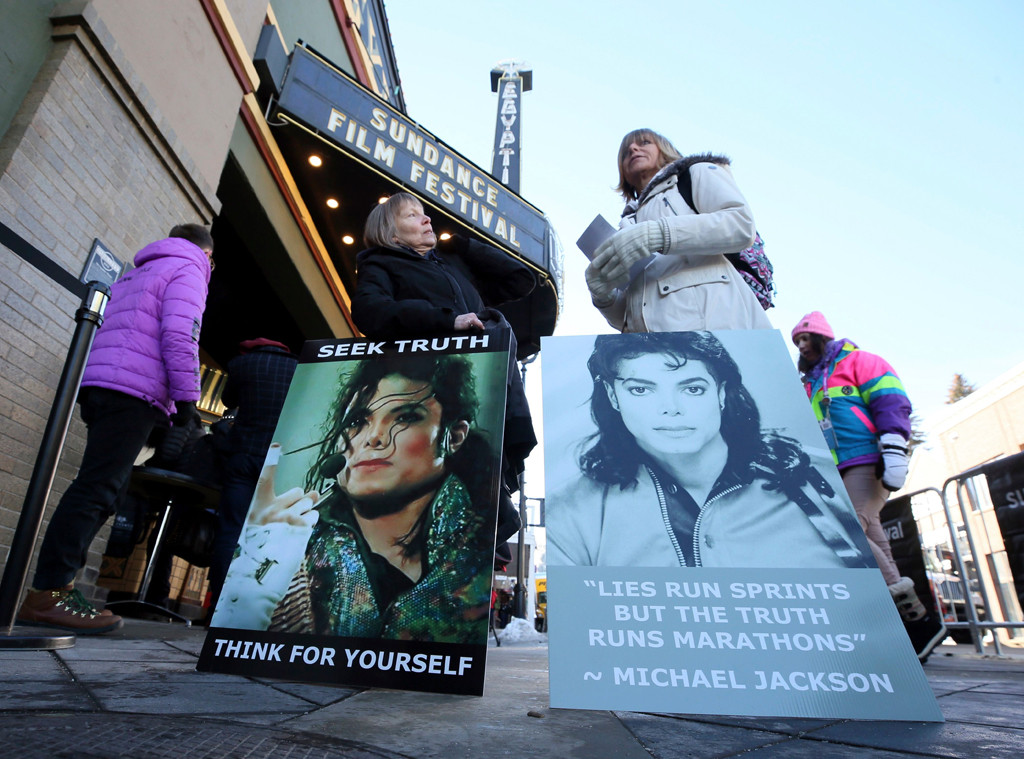
Danny Moloshok/Invision/AP/REX/Shutterstock
“This is yet another lurid production in an outrageous and pathetic attempt to exploit and cash in on Michael Jackson,” read a statement released by his estate earlier this month in response to the film, which is premiering on HBO and the U.K.’s Channel 4 this spring. “Wade Robson and James Safechuck have both testified under oath that Michael never did anything inappropriate toward them. Safechuck and Robson, the latter a self-proclaimed ‘master of deception,’ filed lawsuits against Michael’s estate, asking for millions of dollars. Both lawsuits were dismissed.
“This so-called ‘documentary’ is just another rehash of dated and discredited allegations. It’s baffling why any credible filmmaker would involve himself with this project.”
The film festival issued its own statement, saying, “Sundance Institute supports artists in enabling them to fully tell bold, independent stories, stories on topics which can be provocative or challenging.”
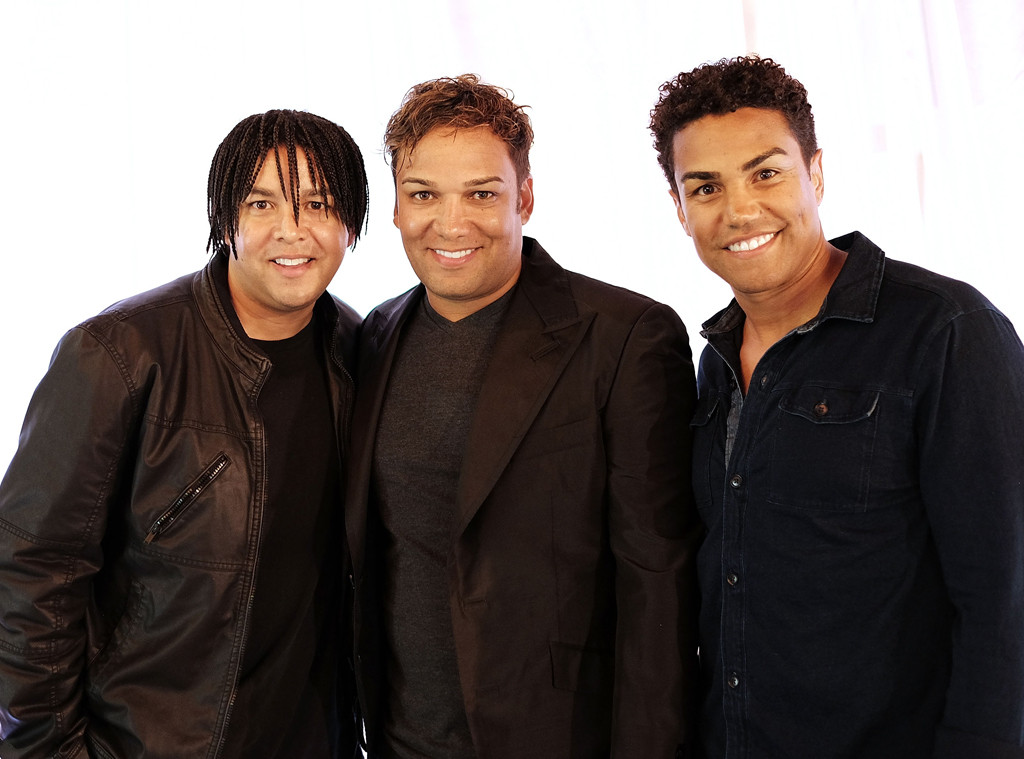
Jason Kempin/Getty Images
In response, Michael’s cousin Taj Jackson, Tito Jackson‘s eldest son, has started a GoFundMe to finance a documentary series that, he says, “will conclusively destroy decades of salacious myths which have been told and sold about Michael Jackson ad nauseum.” The proposed series will be “the definitive historic record of the most discussed aspects of Michael Jackson’s private life, placing the most controversial stories under the microscope, tracing their origins and dissecting how and why the media’s narrative diverged from the truth.”
As of last night, he had raised more than $32,700, out of a $770,000 goal.
In response to the supportive tweets that piled up over the weekend after Leaving Neverland‘s premiere, Taj tweeted Sunday, “I’ve been sitting here reading all your messages & I hear U & feel U. My uncle would be so proud of us. I thought now would be a good time for an update because a lot of you are feeling helpless. Please don’t. Hold your head up high & stay proud. Show the world your love for MJ”

Taylor Jewell/Invision/AP/REX/Shutterstock
In a Q&A after the screening Friday, asked what he had to say to those who think he’s lying, Robson said, “I don’t feel like there’s anything that I need to say to them except that I understand that it’s really hard for them to believe. Because in a way, not that long ago, I was in the same position that they were. So I understand, and we can only accept and understand something when we’re ready. Maybe we’ll never be ready, maybe we will. So that’s their journey.”
“From the get-go,” Safechuck said, “there was no money ever offered [to do the movie] and we never expected anything. It was really trying to tell the story and shine light on it, to give people the same connection and comfort [Wade and I have] got going through this.”
Leaving Neverland arrives on the heels of the Lifetime docu-series Surviving R. Kelly, which, despite myriad allegations of underage sex abuse leveled at Kelly over the years (he was acquitted of child porn charges in 2008), seems to have proved the tipping point when it comes to professional fallout. Since the series premiered, Sony Music and Kelly have parted ways, Lady Gaga spoke out to say she regretted collaborating with him in 2013, Kelly is under investigation in Georgia over claims made in the show, and the usual wedge has been driven between those who are done with him and who have been done with him, and those who think he is being unfairly maligned.
“People shouldn’t be able to do this to someone,” Kelly attorney Steven Greenberg told ABC News, referring to the allegations laid out in Surviving R. Kelly that, the lawyer claims, were untrue.
Similar to Kelly (or not at all, depending on whom you ask), Jackson’s career was still thriving and continued to thrive as accusations of misconduct with underage boys started to cloud the King of Pop narrative. He had just performed at the Super Bowl and was in the middle of his Dangerous World Tour when the acid rain started to fall in 1993.

PONGSAK CHAIYANUWONG/AFP/Getty Images
As Jackson was getting ready to perform in Bangkok, authorities raided Neverland Ranch on Aug. 23, 1993, in response to an abuse complaint lodged with the Los Angeles Police Department.
Jordan Chandler, who was 12 when he met the singer, had started visiting Jackson’s storied property, complete with zoo and amusement park, in Los Olivos, Calif., along with his mother and sister. He had told a psychiatrist that Jackson he had been having sexual contact with Jackson; his claims were immediately reported to the L.A. County Department of Children’s Services and he was interviewed by a caseworker and a LAPD officer.
A 10-year-old Robson and another boy, 11-year-old Brett Barnes, participated in a news conference arranged by private investigator Anthony Pellicano, who was tasked to do damage control for Jackson in the wake of the accusations. Robson told reporters that he had shared a bed with Jackson but as “just a friend.” “Michael is a very, very kind person,” he said, “really nice and sweet. Sure, I slept with him on dozens of occasions but the bed was huge.”
“He kissed you like you kiss your mother,” Barnes told reporters. “It’s not unusual for him to hug, kiss and nuzzle up to you and stuff.”
In his 2009 book Michael Jackson: The Magic, the Madness, the Whole Story 1958-2009, J. Randy Taraborrelli writes that Jackson called him from Bangkok in August 1993 after the journalist had appeared on CNN to talk about the allegations and suggested that the media practice restraint in their reporting on the case.
“I’m just very, very…sad,” Jackson told him. “It’s such a terrible world, isn’t it? No love in the world at all.” Back in the U.S., Jackson family members held a press conference during which they pledged their full support to Michael.
They said they believed that “Michael has been made a victim of a cruel and obvious attempt to take advantage of his fame and success. We know, as does the whole world, that he has dedicated his life to providing happiness to young people everywhere. We are confident that his dignity and humanity will prevail.”
Jordan Chandler’s father filed a civil lawsuit against Jackson in September 1993, alleging sexual battery, seduction, willful misconduct, intentional infliction of emotional distress, fraud and negligence. The boy alleged in a sworn declaration that Jackson, whom he met in 1992, “had sexual contact” with him on “many occasions.” The abuse stopped, Jordan stated, after he went to live with his father in July 1993.
The case was settled for an undisclosed sum before it went to trial. The confidential settlement agreement, obtained 10 years later by CNN, revealed that Jackson paid roughly $25 million, while also disclaiming any liability to, and denying, any wrongful acts.
Numerous people of all ages, including Robson, were interviewed by police and grand juries were convened in Los Angeles and Santa Barbara Counties in the spring of 1994 on the basis of the Chandler allegations, but no indictments were returned.

AFP/Getty Images
Then, on May 26, 1994, Jackson married Lisa Marie Presley, and thus a new spectacle for people to puzzle over was born, aided and abetted by the couple’s onstage kiss at the MTV Video Music Awards that September.
Though they did bond over their unusual backgrounds, Jackson as a young superstar and Presley as the only daughter of one of the biggest stars of all time, who died when she was 9, they divorced in 1996.
Between 2002 and 2003, Jackson met with journalist Martin Bashir for a series of interviews that culminated in the 2003 TV special Living With Michael Jackson, which first aired on ITV in the U.K. Also featured in the show was 12-year-old Gavin Arvizo, who told Bashir that he met Jackson a couple years prior after he had been given a terminal cancer diagnosis. (Jackson noted during the show that Gavin had recovered, saying, “Not sick at all, no more cancer.”)
Gavin said that he, too, had spent the night with Jackson in his bedroom, he in the bed and Jackson on the floor. Asked what he had to say to all the people who thought sharing a room or a bed with young boys was inappropriate for a grown man, Jackson replied, “I feel sorry for them because that’s judging someone who just wants to really help people. Why can’t you share your bed? The most loving thing to do is to share your bed with someone, you know?”
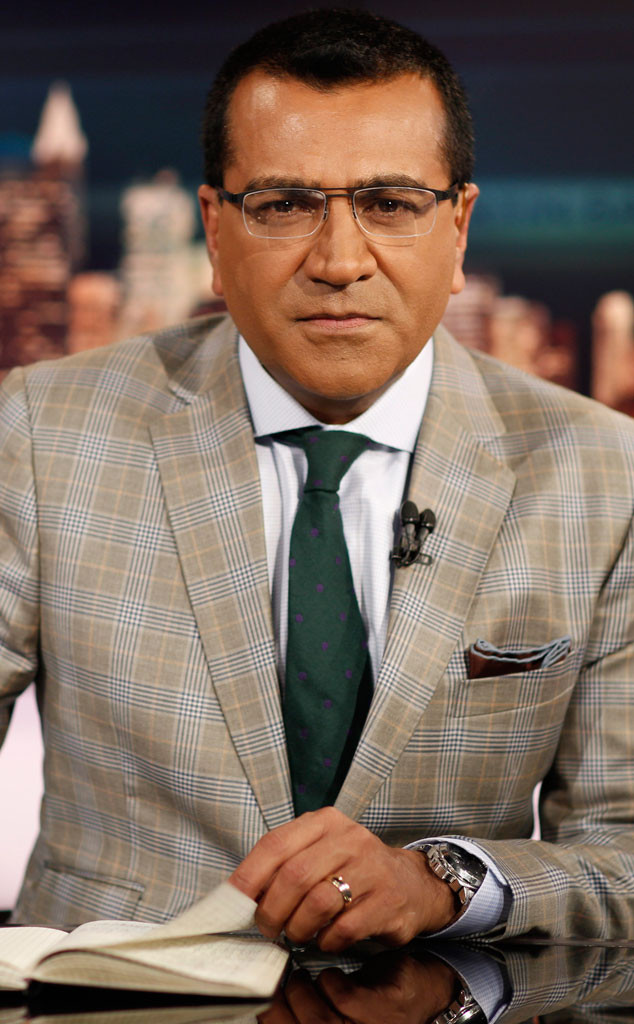
MSNBC
Asked if his parents were happy that he was spending time with Jackson at Neverland, Gavin said, “Yeah, my mom is very, very, very happy. And I know they’re happy because I was happy.” His parents would go with him to visit Jackson “most of the time,” but he “was mainly with Michael.”
Jackson, who said he had let Bashir into his life in part because the journalist had convinced him that his 1996 sit-down with Princess Dianahad helped people better understand her (Diana ultimately regretted doing the interview), stated after the special aired in Britain in February 2003 that he felt deceived by the finished product, that it was edited to make his relationship with Gavin look inappropriate. Even in the pre-Twitter era, his loyal fans were particularly unkind to Bashir as well.
Jackson responded by handing his tapes from his time with Bashir over to Fox and Maury Povich, which resulted in the special The Michael Jackson Interview: The Footage You Were Never Meant To See.
But spurred on by demands to investigate Jackson’s actions in the wake of the Bashir interview, in November 2003, Santa Barbara authorities again searched Neverland.
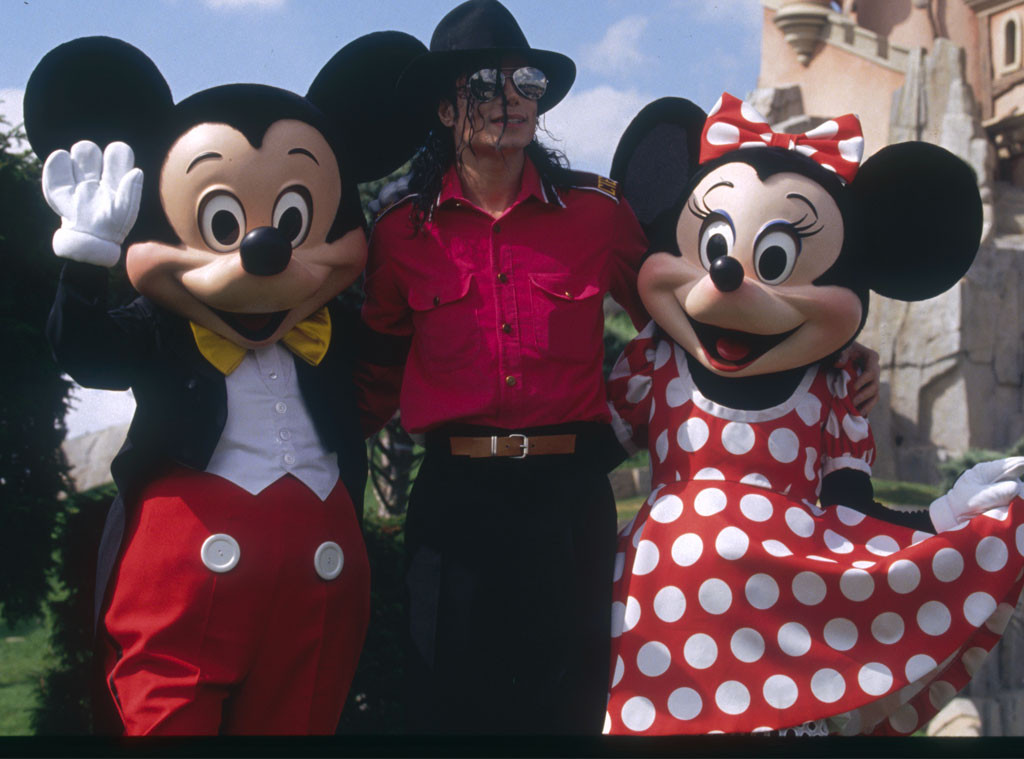
Photo by Jacques Langevin/Sygma/Sygma via Getty Images
In April 2004, Santa Barbara District Attorney Thomas Sneddon obtained a 10-count indictment against Jackson for behavior that allegedly occurred between Feb. 20 and March 12, 2003, all of which was after the Bashir special aired. He tacked more charges on later.
Ultimately Jackson was tried on 14 counts: four charges of child molesting, one charge of attempted child molesting, one charge of conspiracy to hold the boy and his family captive at Neverland and eight counts of providing alcohol to a minor with the intent to molest him.
He pleaded not guilty to all.
Meanwhile, the testifying under oath that the Jackson estate referred to in its response to Leaving Neverland occurred in front of a grand jury after the 1993 civil suit was filed, and again in 2005, when Robson took the stand in Jackson’s defense when the Thriller artist was criminally charged with molesting Gavin Arvizo. Robson again said that he slept in a bed with Jackson on numerous occasions at Neverland Ranch, but it was all innocent.
Robson’s mother, Joy, also testified in 2005 about dropping her son off to stay with Jackson, saying she wasn’t concerned for Wade’s safety.
“Michael Jackson is a very special person,” she said, per Taraborrelli. “Unless you know him, it’s hard to understand him. He’s not the boy next door.” Joy Robson also called June Chandler, Jordan Chandler’s mother, a “gold digger.”
June Chandler testified, meanwhile, that her son hadn’t spoken to her in 11 years and she regretted ever letting her son spend time with Jackson.
From start to finish, the trial earned its comparison to a circus, whether it was from Jackson climbing on top of a car to greet his fans one day or showing up in pajamas the next. But the overall gist of the defense’s case ultimately seemed to be that the abnormal stuff going on at Jackson’s house between an adult man and young boys simply was not a crime.

HECTOR MATA/AFP/Getty Images
“I’m very mad about it,” Robson, then 22, said on the stand, referring to other witnesses’ claims that Jackson had molested him. “It’s not true and they put my name through the dirt. I’m really not happy about it.”
When Jackson was found not guilty on all counts, New Yorker writer and CNN legal analyst Jeffery Toobin called it, per Taraborrelli, “an absolute and complete victory for Michael Jackson, utter humiliation and defeat for Thomas Sneddon, the district attorney who has been pursuing Michael Jackson for more than a decade, who brought a case that was not one that this jury bought at all. This one’s over.”
“My past history with Mr. Jackson absolutely, unequivocally has nothing to do with this case,” Sneddon told reporters after the verdict. “I thought we had a good case this time.”
In Ian Halperin’s 2009 book Unmasked: The Final Years of Michael Jackson, Macaulay Culkin, who met Jackson soon after he made Home Alone, remembered hanging out with Robson and Brett Barnes at Neverland. “We had a blast,” he said. (Barnes and Barnes’ mother and sister also testified in Jackson’s defense in 2005, as did Culkin.)
“I can describe our friendship and I can explain Michael’s bond with children, but no matter what I say you can never understand,” Culkin, who attended Jackson’s funeral in 2009, told Halperin. “Unless you’ve been through what Michael and I have been through, you just can’t comprehend what it’s like.”
The actor was referring to becoming famous at a very tender age, which had its perks and pitfalls for both him and Jackson.
Halperin, meanwhile, writes in his book’s introduction that he originally set out to right what he thought was the wrong of Jackson’s acquittal in 2005, figuring he would simply “let the facts speak for themselves” and his readers would judge accordingly. Considering his book is dedicated to Jackson’s fans “who stood by him no matter what” and to his three children “for whom he was a most proud and dedicated father,” Halperin’s investigation didn’t go the way he assumed it would.
After Jackson died suddenly on June 25, 2009, while in the middle of preparing for a 50-date engagement at London’s O2 Arena—his eerily titled “This Is It” show—his three children were left in the care of their grandmother Katherine Jackson. A star-studded July memorial at Staples Center was the first time anybody heard from the kids, with one of the show’s most memorable moments being a tearful 11-year-old Paris Jacksoncalling her enigmatic dad “the best father you could ever imagine.”
“And I just wanted to say I love him so much,” Paris added, sobbing, as her family, including aunt Janet Jackson, closed ranks around her.
Closing ranks is again what the Jackson family is doing, and once again it’s around Michael’s memory.
“Michael Jackson is our brother and son,” began a new statement released by the family on Monday morning and obtained by E! News. “We are furious that the media, who without a shred of proof or single piece of physical evidence, chose to believe the word of two admitted liars over the word of hundreds of families and friends around the world who spent time with Michael, many at Neverland, and experienced his legendary kindness and global generosity. We are proud of what Michael Jackson stands for.”
After reiterating that Jackson had, over the years, been investigated and, at one point, acquitted at trial, the statement calls the film a “public lynching” and calls out “the vulture tweeters and others who never met Michael” going after him.
The family concludes: “The facts don’t lie, people do. Michael Jackson was and always will be 100% innocent of these false allegations.”
In or around 2000, according to Taraborrelli, when Jackson wanted to meet the newest superstar on the block, Justin Timberlake, he asked Robson, who had worked with ‘N Sync, to set it up. Timberlake enthusiastically agreed, but when he showed up at the meeting with his girlfriend at the time, Britney Spears, Jackson was annoyed. Apparently he only wanted to meet Justin.
He eventually agreed to see both, however, and ended up really liking Britney, too.
Jackson also ended up collaborating with both, and he and Britney sang “The Way You Make Me Feel” together for the 2001 CBS special Michael Jackson: 30th Anniversary Celebration.
When he died, the pop star stated, “I was so excited to see his show in London. We were going to be on tour in Europe at the same time and I was going to fly in to see him. He has been an inspiration throughout my entire life and I’m devastated he’s gone!” Timberlake, too, called him an “inspiration” and said he would “always cherish the moments I shared with him on stage and all of the things I learned about music from him and the time we spent together.”
Asked last week if he was at first skeptical of Robson and Safechuck’s claims, since they had previously defended Jackson, Leaving Neverland director Dan Reed told the Los Angeles Times, “When Wade told me that he loved Michael, then everything suddenly crystallized and made sense. This is difficult to say, but he had a fulfilling sexual and emotional relationship at the age of 7 with a 30-year-old man who happened to be the King of Pop.
“And because he enjoyed it, he loved Michael, and the sex was pleasant. I’m sorry, that’s just the reality.”
Reed said that they looked into including Macaulay Culkin and Brett Barnes in the film, that he set out to find Jordan Chandler and Gavin Arvizo, and that he reached out to Arvizo.
“I wrote to Gavin, because I really thought that perhaps we’d have a chance of getting Gavin in as well,” the director said. “I interviewed prosecutors and detectives and did a lot of research, both to validate what the guys had told me, but also to just steep myself in the story so I had a good perspective on it. But in the end, I realized that the really extraordinary thing was the two families and their stories.”
He implied that Culkin, who has always insisted that he had a “normal friendship” with Jackson and the artist never hurt him, declined to be interviewed. And if he had, “of course I would have interviewed them,” Reed said, “but I don’t know how I would have structured the film. It would have been an eight-hour epic or something, because then I would had to have interviewed Macaulay’s mom and dad and brother and the whole thing. I think pedophiles often groom a family, they don’t groom a child.”
Asked why he thought Jackson had been able to act with near impunity for all those years, Reed said, “He was very powerful and very wealthy and could hire lawyers who would intimidate. People are scared of Jackson, still. They’re scared of his legal team. They’re very aggressive. I got that feeling from approaching members of the household staff and detectives—you don’t [mess] with Jackson.”
In 2013, Robson filed a lawsuit against Jackson’s estate, alleging that the late singer had, despite what he testified to earlier, abused him when he was a child. The complaint was sealed, though a potential scenario in which such a thing could occur had been publicly laid out years beforehand in the 1993 Chandler lawsuit and the 2005 criminal trial.
“From day one of the abuse, Michael told me that we loved each other and that this was love, that this was an expression of our love,” Robson, who as a boy appeared in the music videos for “Black or White,” “Jam” and “Heal the World,” said in an interview on Today a few weeks later. “And he would follow that up with, ‘But if you ever tell anyone what we’re doing, both of our lives and careers will be over.'”
“This is not a case of repressed memory,” he also said. “I have never forgotten one moment of what Michael did to me, but I was psychologically and emotionally completely unable and unwilling to understand that it was sexual abuse.”
Howard Weitzman, an attorney for the Jackson estate, called Robson’s suit “outrageous and sad.”
Robson’s lawyer Henry Gradstien told E! News at the time, “Michael Jackson was a monster and in their hearts every normal person knows it. Wade Robson, in addition to being one of the most talented people on the planet, is one of the kindest, most gentle, decent and introspective human beings one will ever meet. He is the loving father of a young son and happily married. Last year, on a career trajectory that was off the charts, he collapsed under the stress and sexual trauma of what had happened to him for seven years as a child.” The Jackson estate, protective of the cash cow that was Jackson’s musical legacy, was only trying to stop the truth from coming out, Gradstien stated.
“To us, he would always defend Michael through the previous sexual abuse allegations,” a source close to Robson also told E! News. “He loved Michael and would be the first to stick up for him. But to be honest, today’s news has not been a surprise as the relationship between Michael and the family was very unusual.”
Robson’s claim was dismissed in 2015, with the judge agreeing that the statute of limitations—which to file a civil suit in California alleging sexual abuse is eight years—should prevent the case from moving forward. (A state statute mandates, however, that a plaintiff can file suit within three years of learning of “psychological injury or illness” caused by sexual abuse.)
The plaintiff, whose attorney argued that he had been too traumatized to consider taking action earlier, vowed to appeal.
Robson did appeal and, in 2016, added negligence claims against two media companies Jackson owned, MJJ Ventures and MJJ Productions, charging in the complaint that they encompassed “a child sexual abuse operation, specifically designed to locate, attract, lure and seduce child sexual abuse victims.”
The suit alleged that the abuse, which included kissing and penetrative sex, continued from the time he was 7 until he hit puberty at 14.
The estate’s recent remark calling Robson a “self-proclaimed ‘master of deception'” was in reference to language used in an email and a December 2016 deposition: In an email referenced during the interview, Robson apparently calls himself a “master of deception.” Questioned about it, Robson confirmed he used that phrase. Asked if he thought he was a good liar, Robson replied, “I believe Michael Jackson taught me how to lie really well about the abuse that I suffered at his hands.”
Asked to confirm that he had “consistently lied” about not being abused, Robson answered, “Yeah. I told the story Michael taught me to tell until May 8, 2012.”
The claims against the companies were subsequently dismissed in December 2017, with the judge ruling they were not liable for Robson meeting Jackson.
Safechuck, who appeared in a Pepsi commercial with Jackson in 1987, filed a civil suit in 2014, alleging that Michael abused him for several years, starting when he was 10. That complaint was also sealed, but The Daily Beast was first to report that the new plaintiff was Safechuck. Per the report, Safechuck’s name had been on a list of potential past victims that was filed ahead of the trial in 2005, but he had denied that the singer molested him.
Safechuck’s suit was dismissed in 2017, again with the judge citing the statute of limitations.
A 10-year-old Jimmy Safechuck accompanied Jackson on the London and Paris legs of his blockbuster Bad tour, that Jackson had a child-size version of one of his costumes made for the boy. The two appeared onstage together in their matching outfits at the final show of the tour in January 1988 in Los Angeles.
Also per Taraborrelli, Jackson gifted Safechuck’s parents a $100,000 Rolls Royce, prompting his manager at the time, Frank DiLeo, to suggest Michael cut ties with Jimmy because their relationship was starting to look inappropriate. Jackson refused and told him to mind his own business.
After the 1993 raid on Neverland, Safechuck joined various other boys, including one named Jonathan Spence (who Jackson started hanging out with in 1984 and who was also on the list of potential victims) and Webster star Emmanuel Lewis, in telling authorities that Jackson had never been inappropriate with them. Safechuck didn’t testify again in 2005, as Robson did, but he did so in 1993.
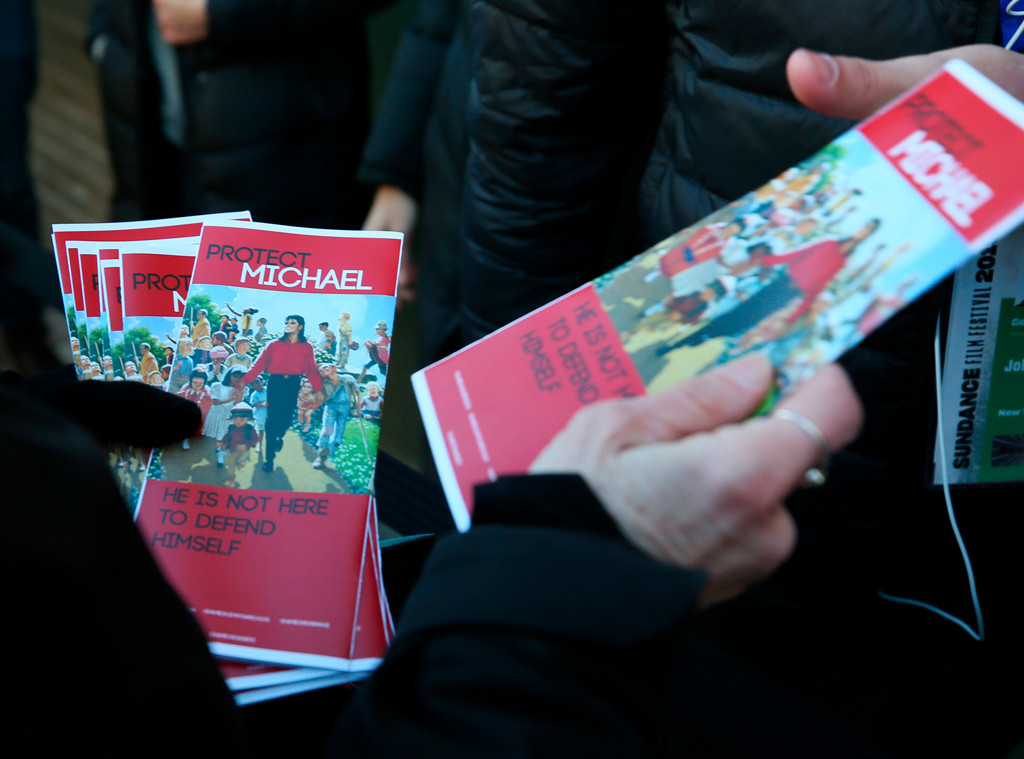
Danny Moloshok/Invision/AP
When HBO first announced that Leaving Neverland was coming to the network this spring, Dan Reed said in a statement, “If there’s anything we’ve learned during this time in our history, it’s that sexual abuse is complicated, and survivors’ voices need to be listened to. It took great courage for these two men to tell their stories and I have no question about their validity. I believe anyone who watches this film will see and feel the emotional toll on the men and their families and will appreciate the strength it takes to confront long-held secrets.”
“We’ve been looking for a platform to be able to tell the truth,” Robson said at the Q&A Friday, per the Los Angeles Times. “We can’t change what happened to us. We can’t do anything about stopping Michael. He’s dead. That’s gone. What happened, happened. The feeling is, ‘What can we do now?'”
